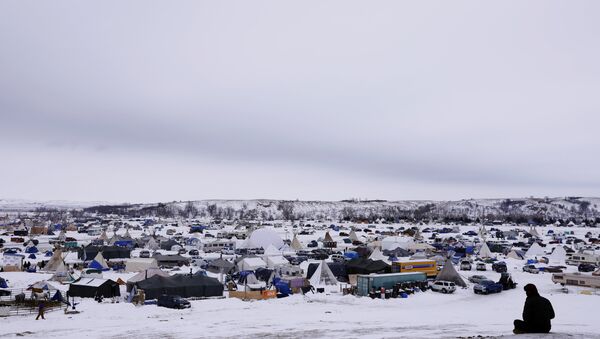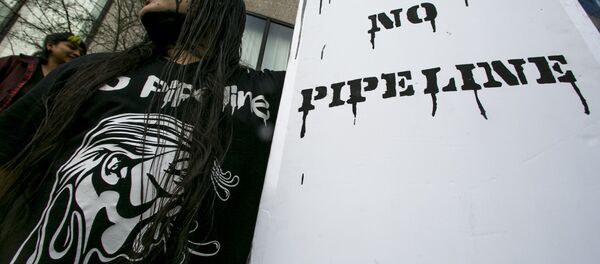Radio Sputnik’s By Any Means Necessary speaks with Sandra Freeman, criminal case coordinator with the Water Protectors Legal Collective, about the legal battles that will continue after the national spotlight dims on Standing Rock.
Host Eugene Puryear noted the "heavily militarized police presence, despite the fact that these have been peaceful protests all along."
Freeman explained that, "As the campaign has gone on, especially in the last six weeks, police brutality, in an individualized way, has been increasing. We’ve seen individual people picked off and brutalized, not in a mass police line and demonstration confrontation type of way."
Puryear pointed out the hypocrisy offered by North Dakota Governor Doug Burgum, in making the absurd claim that the main camp site must be evacuated for the safety of protesters.
The lawyer agreed, saying, "The newest narrative that we’re seeing from the North Dakota governor’s office is that this is an 'environmental hazard,' which to be is darkly preposterous and hilarious," especially when considering the devastating impact that oil pipelines continue to have on the environment in the US.
"It seems like the government at all levels has been making the rules up as it goes along this whole time," said Puryear, "There’s so many rationales for why they do what they do at any given moment, but the one rationale that they don’t actually want to put out there is that they’re doing everything possible to make sure this pipeline proceeds, when that, in fact, seems to be the case."
"That shifting rationale is what indigenous folks and people of color have been dealing with since the establishment of settler colonialism in what is now called the United States," Freeman offered, "When it comes to resource extraction, the policy will always change."
Freeman said that since the campsites are being shut down, the "desk work" of the movement, which typically receives less attention than physical demonstrations, will continue.
"In some ways it’s not as gratifying because we’re not able to see it on front lines in the same way that we were in the months that the demonstrations were happening, in such a compelling way," she said, "But there is still a really compelling story to be told, of every person who came here to be with their family, or as allies to put themselves on the line, and to present themselves in support of indigenous sovereignty and in support of clean water. Those stories still remain to be told, and I hope that the world continues to pay attention."




